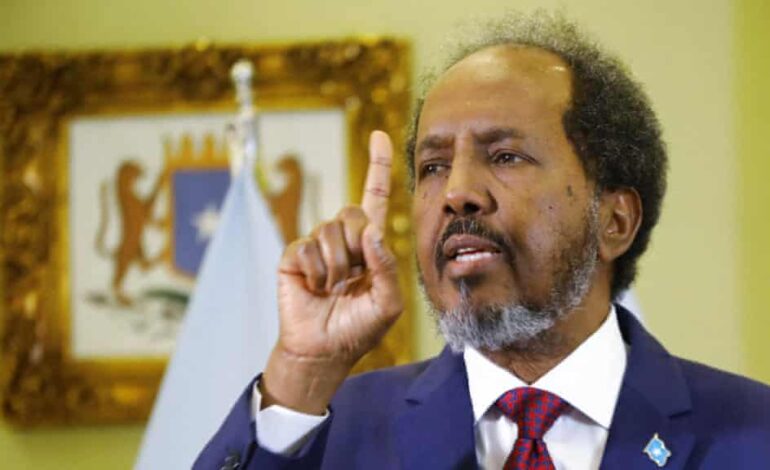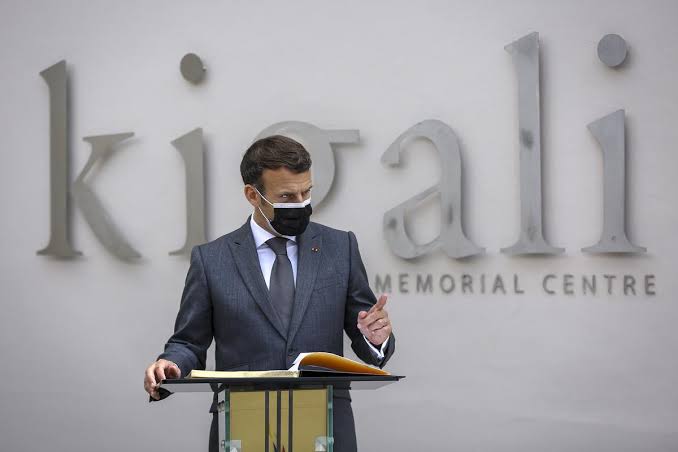
Faith Nyasuguta
The recent overhaul of Somalia’s constitution, which dismantles the power-sharing system and grants the president greater authority, is raising concerns about stability. The move, spearheaded by President Hassan Sheikh Mohamud, has faced resistance from the semi-autonomous state of Puntland, which refuses to acknowledge the changes.
The constitutional amendments, approved by Somali lawmakers, mark a significant shift in the country’s political landscape. They grant the president the power to appoint and dismiss prime ministers, centralizing authority in the executive branch.
Additionally, the amendments give the president greater control over the electoral commission, diminishing the influence of federal states. The traditional power-sharing arrangement based on clan representation in parliament is also being replaced with universal suffrage.
Mohamud Aidid Dirir, the information minister of Puntland, has voiced concerns about the amendments, warning that they could exacerbate violence and undermine the country’s fragile peace. He criticized President Mohamud for consolidating power and sidelining federal states in the decision-making process. Dirir emphasized that Puntland was not consulted on the changes and refuses to recognize them.
The tension between the central government and Puntland escalated recently when the Somali government ordered the closure of Ethiopia’s consulate in Puntland and expelled the Ethiopian ambassador. This move was seen as retaliation for Puntland representatives’ visit to Addis Ababa, which the central government viewed as interference in internal affairs.
Puntland, established as a self-governing entity in 1998, holds significant political and economic power within Somalia. Its refusal to accept the constitutional amendments reflects broader concerns about the centralization of authority in Mogadishu and its implications for national unity.
The debate over Somalia’s constitution comes at a critical time for the country, which has been grappling with instability for decades. Since the collapse of the central government in 1991, Somalia has been plagued by civil war, terrorism, and humanitarian crises. The emergence of al-Shabaab, a jihadist group, further complicated efforts to establish stability and governance.

The current constitutional amendments have sparked mixed reactions from various stakeholders. Former presidents and prime ministers have expressed reservations about the changes, warning that they could upset the delicate balance of power in Somalia. Additionally, some federal states have yet to comment on the amendments, highlighting the complexity of Somalia’s political landscape.
The rift between the central government and Puntland underscores broader challenges facing Somalia’s federal system. The country’s transition to democracy has been marred by disagreements over the distribution of power and resources between the federal government and regional administrations. The failure to address these underlying issues could undermine efforts to build a unified and stable Somalia.
While President Mohamud has framed the constitutional amendments as necessary for Somalia’s political development, critics argue that they deviate from the principles of federalism and inclusivity enshrined in the 2012 constitution. Crafting a new constitution was a key election pledge for Mohamud, who has emphasized the need to move away from a provisional governance structure.
However, the rushed nature of the constitutional amendments and the lack of consultation with federal states have raised concerns about their legitimacy and effectiveness. Without buy-in from all stakeholders, including Puntland and other federal states, the amendments risk exacerbating existing tensions and undermining Somalia’s fragile progress towards peace and stability.
Moving forward, Somalia must prioritize dialogue and consensus-building to address the underlying grievances driving political divisions. A transparent and inclusive process for constitutional reform is essential to ensure that the concerns of all stakeholders are heard and addressed. Only through genuine cooperation and collaboration can Somalia overcome its challenges and build a more resilient and unified nation.
RELATED:




